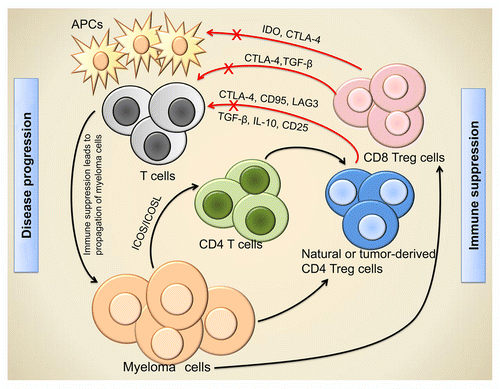Figures & data
Figure 1. Regulatory T cell-mediated immunosuppression and disease progression in myeloma. Myeloma cells stimulate the differentiation of tumor-derived regulatory T cells (Tregs) from CD4+ T cells in an inducible co-stimulator (ICOS)-dependent manner, and favor the accumulation of naturally occurring CD4+ and CD8+ Tregs. Tregs suppress antitumor immune responses by inhibiting other immune cells, including T cells and antigen-presenting cells (APCs), via both cell contact-dependent and -independent mechanisms. The immunosuppression mediated by Tregs generates a path for the immune evasion and uncontrollable growth of myeloma cells, thus favoring disease progression. CTLA4, cytotoxic T-lymphocyte-associated protein 4; ICOS-L, ICOS ligand; IDO, indoleamine 2,3-dioxygenase; LAG3, lymphocyte-activation gene 3; TGFβ, transforming growth factor β.
